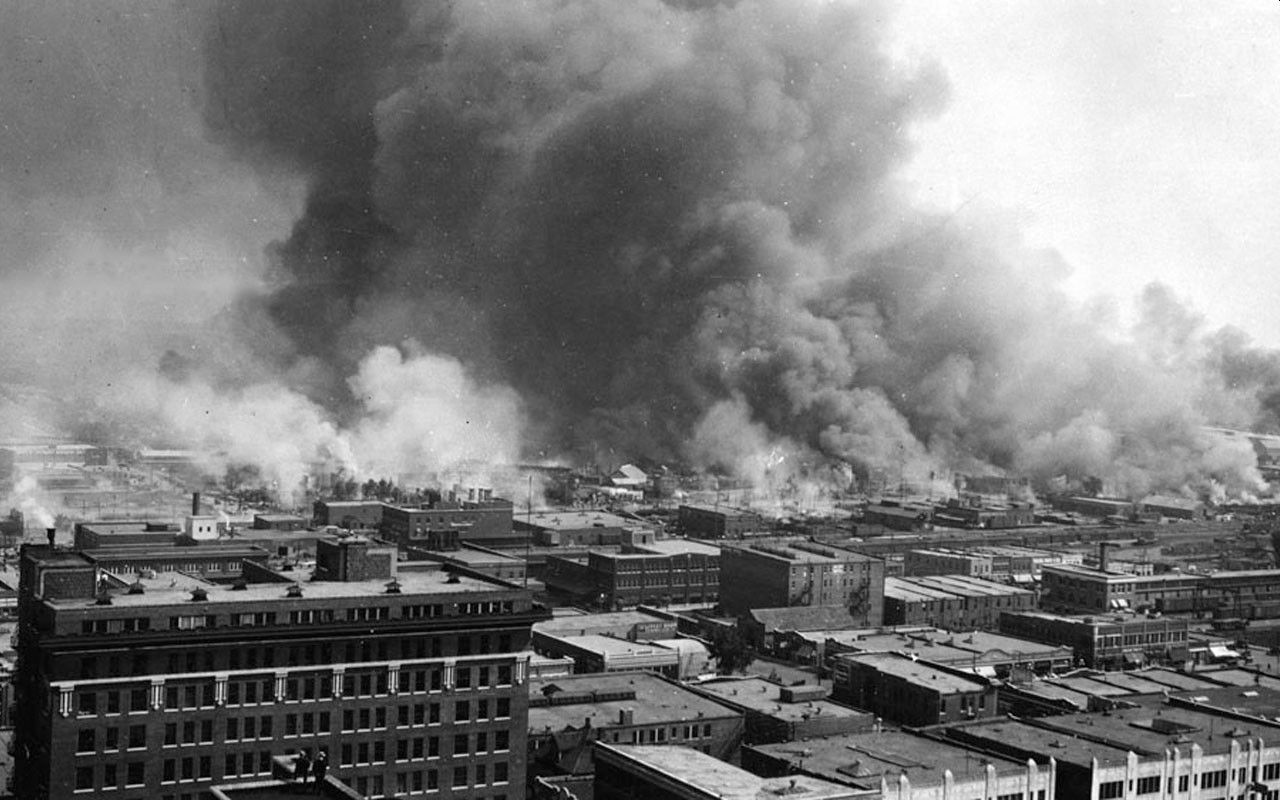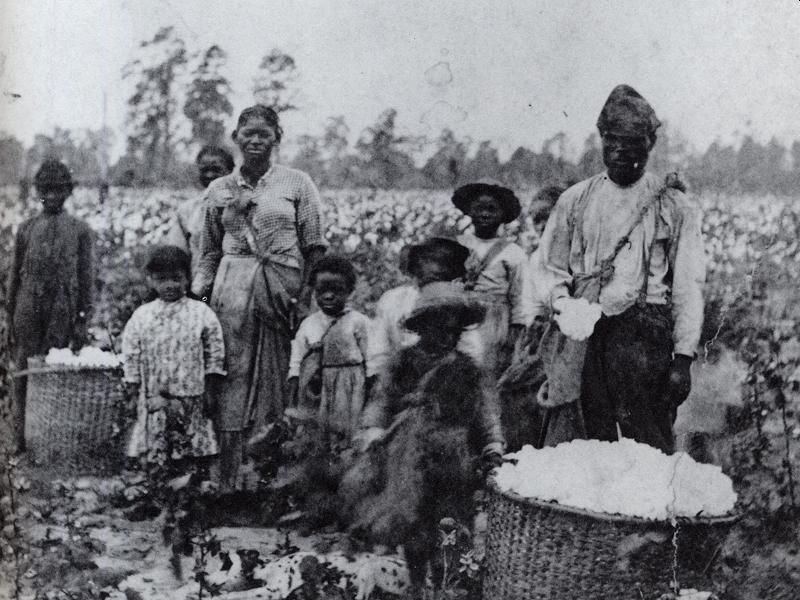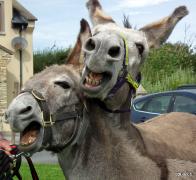PolitiFact | Do Florida school standards say 'enslaved people benefited from slavery,' as Kamala Harris said?
By: politifact



Vice President Kamala Harris drew wide attention when she called a section about slavery in Florida's new middle school social studies standards an "insult."
"They push forward revisionist history," Harris said July 20 at a national convention of Delta Sigma Theta Sorority Inc. "Just yesterday, in the state of Florida, they decided middle school students will be taught that enslaved people benefited from slavery. They insult us in an attempt to gaslight us, and we will not stand for it — we who share a collective experience in knowing we must honor history and our duty in the context of legacy."
Harris revisited the subject in Jacksonville, Florida, July 21. "They want to replace history with lies," she said.
Florida Gov. Ron DeSantis, speaking in Utah that day, said he "wasn't involved" in writing the standards, but he defended them as being "rooted in whatever is factual."
"They're probably going to show that some of the folks that eventually parlayed, you know, being a blacksmith into doing things later in life," he told reporters.
The Republican National Committee accused Harris of telling a "complete lie." Conservative critics said Harris was focusing exclusively on one part of the standards.
Although the new standards include many conventional lesson points about the history of slavery, they also include a sentence that enslaved people developed skills that "could be applied for their personal benefit" — and this has drawn heated rebuttals from historians, who consider it factually misleading and offensive for seeming to find a silver lining in slavery.
Florida's new standards say 'slaves developed skills'
The Florida Board of Education approved new social studies standards July 19 following a law passed by the legislature in 2022, known as "Stop Wrongs Against Our Kids and Employees Act" or the "Stop W.O.K.E. Act."
The law bans workplaces and schools from teaching that anyone must feel guilt based on their race as a result of actions by others in the past. Earlier this year, Florida rejected a new high school Advanced Placement course on Black studies.
The 216-page standards document covers a broad sweep of Black history, along with topics such as the Holocaust, world history and geography. It includes different standards for elementary, middle and high school students.
The part of Florida's new standards that Harris was citing is for grades six through eight. It says:
"Examine the various duties and trades performed by slaves (e.g., agricultural work, painting, carpentry, tailoring, domestic service, blacksmithing, transportation)."
The controversial part is in this "benchmark clarification" about slave labor: "Instruction includes how slaves developed skills which, in some instances, could be applied for their personal benefit."
The rest of the document includes specific standards about slavery, including the development of slavery and the conditions for Africans as they were brought to America. It also covers how slave codes resulted in enslaved people becoming property without rights, abolitionist movements, state and federal laws, revolts by slaves, and the Civil War.
Lessons about Black history include later eras such as Reconstruction, Jim Crow laws, lynchings, contributions of Black Americans during both world wars, and the modern Civil Rights movement.
The standards include some information covering the past two decades, naming an array of historically significant Black Americans who should be included in instruction, such as President Barack Obama, Supreme Court Justices Ketanji Brown Jackson and Clarence Thomas, Secretaries of State Colin Powell and Condoleezza Rice, and Harris, the first Black vice president and first woman in the role.
The standards do not address the Black Lives Matter movement, including nationwide protests following the 2020 murder of George Floyd, a Black man, by Minneapolis police.

Destruction from the 1921 Tulsa massacre, in which white mobs attacked and razed a Black neighborhood, killing dozens. (Library of Congress)
Working group members respond to critics
Following state law, the standards were written by a working group that included teachers or school district staff who work in elementary education, social studies or history, or people experienced in teaching Black history.
Featured Fact-check

 Fox News Channel stated on July 5, 2023 in a chyron Gender Queer on NEA Summer Reading List for Kids.
Fox News Channel stated on July 5, 2023 in a chyron Gender Queer on NEA Summer Reading List for Kids. 

Two members of the working group, William Allen and Frances Presley Rice, wrote in a statement shared by the education department that the criticism took "a few isolated expressions without context."
Rice is the chair of the National Black Republican Association. Allen lives in Maryland but grew up in Fernandina Beach, Florida. He is a retired political science professor and former dean of James Madison College at Michigan State University.
The intent of the "personal benefit" benchmark, they wrote, was "to show that some slaves developed highly specialized trades from which they benefited" and listed the names of blacksmiths, shoe makers, shipping and industry workers, tailors and teachers.
"Any attempt to reduce slaves to just victims of oppression fails to recognize their strength, courage and resilience during a difficult time in American history," they said. But the Tampa Bay Times found that some of the people listed by the working group were not enslaved when they developed these skills or were freed at a young age. For example, Booker T. Washington, who was enslaved until he was 9, worked in mines and as a houseboy before entering school and later becoming a teacher.
In an interview with PolitiFact, Allen argued the examples apply even if they developed skills after slavery. He noted that the title of Washington's autobiography was "Up From Slavery."
"They benefited from the skills, not the slavery," Allen told PolitiFact.

Family of enslaved Black Americans in a field in Georgia, circa 1850. (Public domain)
Experts criticized Florida's social studies standards
Multiple experts on Black history and racism in the United States said the language used in Florida's standards about enslaved people learning skills is misleading.
Marvin Dunn, a psychology professor emeritus at Florida International University, has authored several books on the history of African Americans.
"Most enslaved people had no special skills at all that benefited them following their enslavement," Dunn said. "For almost all their skill was picking cotton. An enslaved man who was made to be a blacksmith might have been a king had he not been captured and taken from his country. Is he supposed to be grateful? Enslavement prevented people from becoming who and what they might have been and that was slavery's greatest injury to humankind."
Dunn added that "there was no upside to slavery that applied to the enslaved."
Katheryn Russell-Brown, a law professor and director of the Race and Crime Center for Justice at the University of Florida, said the standards lack important context.
Russell-Brown said the standards offer "no discussion" of people who enslaved others. Much of the attention given to white people relates to how whites stood up against slavery, such as assisting with the Underground Railroad and support for Reconstruction policies for freed Blacks after the Civil War. It includes some information about groups opposed to "American equality," such as the Ku Klux Klan.
Bruce Levine, an emeritus professor of history at the University of Illinois and author of "Half Slave & Half Free: The Roots of Civil War," was one of several scholars of the period who told PolitiFact that they rejected the value of spotlighting "skills" learned while enslaved.
"Very simply, can you imagine saying this about 'skills' developed in Nazi forced-labor camps?" he said.
Carol Anderson, an African American studies professor at Emory University, said the standards represent an "old argument that slavery was a benevolent institution that benefited the enslaved."
"It has the racist underpinning of treating Africans as if they had no skills prior to being kidnapped from their homelands and trafficked to America," Anderson said. "In fact, it was Africans' skills in cultivating tobacco, sugar and rice that proved beneficial to the enslavers and built the inordinate wealth of the United States. The question itself is dehumanizing."
Added Ashley Rogers Berner, director of the Johns Hopkins Institute for Education Policy: "It is not common for state standards to include language about the 'benefit' to enslaved persons of learning trades."
Our ruling
Harris said Florida "decided middle school students will be taught that enslaved people benefited from slavery."
That is not the only lesson Florida students would be taught under the standards that also include many other aspects of Black history and slavery. But the one Harris cited is included, and has drawn significant criticism.
The middle school standards approved by the Florida state education board say students should learn about "skills" learned by slaves that could be "applied for their personal benefit." Several historians who have studied slavery cast doubt on this lesson's educational value.
We rate this statement Mostly True.
Trolling, taunting, spamming, and off topic comments may be removed at the discretion of group mods. NT members that vote up their own comments, repeat comments, or continue to disrupt the conversation risk having all of their comments deleted. Please remember to quote the person(s) to whom you are replying to preserve continuity of this seed. Any use of the phrase "Trump Derangement Syndrome" or the TDS acronym in a comment will be deleted.



Some folks want to whitewash history regarding slavery.
They think they have to feel guilty about what happened in the past or that liberals are trying to make them feel guilty. Nobody is doing that. No one expects them to feel "white guilt". If they do that's on them.
Our history has dark periods but do other countries. We just need to accept those dark periods and make damn sure not to repeat them
EVERY country has dark periods, dark history. The question is how they deal with that history. Germany began a very public examination of its Nazi period in the 1960s, with both documentaries and fiction. France was slower to look at Vichy and Algeria, but both periods have been commonplace topics for decades. I don't know British television very well but I don't think they've really taken a hard look at the crimes of their empire.
The US is behind both Germany and France in examining its dark history.
"More than 1,000 historians, writers and intellectuals have signed a petition demanding the repeal of a new law requiring school history teachers to stress the "positive aspects" of French colonialism.
"In retaining only the positive aspects of colonialism this law imposes an official lie on massacres that at times went as far as genocide on the slave trade, and on the racism that France has inherited," says the petition, which has also been signed by one of France's best-loved humourists, Guy Bedos, and a leading film director, Patrice Chéreau.
The law of February 23 2005, as it is known, was intended to recognise the contribution of the "harkis", the 200,000 or so Algerians who fought alongside France's colonial troops in their country's war of independence, from 1954-62, before being abandoned to a dreadful fate when the French withdrew - about 130,000 were executed as traitors."
The did update text books in 2011 or a decade ago. A recent survey revealed that teachers there still struggle to create lesson plans.
Next are you going to tell us that there isn't any racism and descrimination in France.
Lemme get this straight.... you post some facts that confirm what I posted... and then you question it?


No, you aren’t straight. I posted some facts that disputed your vision of reality.
Yes, emoji’s are easier than thinking and writing.
This an excellent article refuting the premise that black learned skills from slavery.
Note to Florida and DeSantis: Enslaved Africans were already skilled
You should seed this! You will have to do it the hard way because the Washington Post won't let us use Fetch but this is way too good to just be a link.
There's a lot in that article that I didn't know
Some certainly were. Others learned to be blacksmiths, carpenters, brick makers, brick layer, dress making, cooking, small-scale merchants, and government clerks, etc. here.
OK, a bit later today I'll do it.
Maybe most of the standards are appropriate , time will tell.
The question will always be, why include this one? Or any other objectionable standard? Why arent all the standards appropriate?
VP Harris doesn't think so, she thinks it's about "gaslighting", "misleading", "fake", "propaganda".
Additional questions include:
Maybe next time, VP Harris will ask these questions.
I am totally uninterested in your "questions".
We are discussing what is in the news, not what you wish was.
Yes, we are discussing Florida’s AA history public school standards. Some of us are very critical of this work. I offered some comparison with how well or how poorly other states are doing with the same issue.
Perhaps you’re more interested in criticizing Florida than improving AA history instruction writ large.